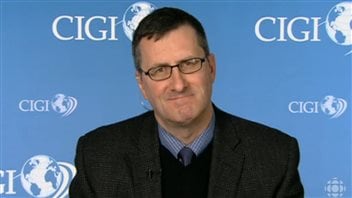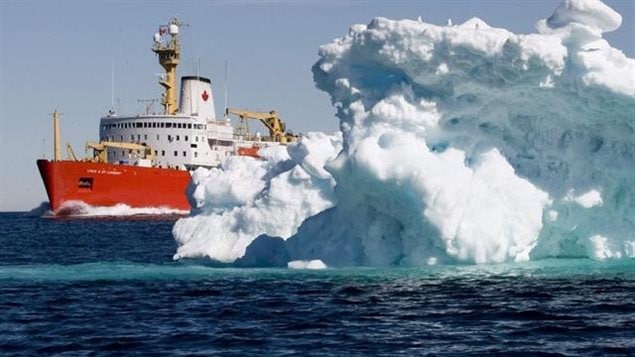Fen Hampson is the co-author of several books, and articles on Canadian sovereignty, foreign policy, domestic and international security, trade and other geopolitical issues.
His latest book is called Brave New Canada Meeting the Challenge of a Changing World. In it, he notes that as many nations take a heightened interest in the Arctic, Canada can no longer ignore it’s own long-standing claim, especially as Russia beefs up it’s activities and strengths in the Arctic, backed by some very strong language.
Fen Osler Hampson is also a distinguished fellow and director of Global Security at the Centre for International Governance Innovation (CIGI) and Chancellor’s Professor at Carleton University
Listen
Successive Canadian governments have often spoken of the need and their intention to strengthen Canada’s presence in the Arctic. This is not only to protect sovereignty, but in terms of control of development and of the ability to respond to humanitarian and environmental emergencies.
With retreating ice due to warming and climate change, the pressures for development and risk of environmental disasters, such as oil spills, have been increasing at a far greater rate than ever before.
In spite of that, little has actually been accomplished by Canadian governments in terms of infrastructure, military presence, or any other substantial activity, other than mapping the Arctic floor.
Professor Hampson notes that Russia has been rapidly building up both its Arctic infrastructure and military, and that it has been using sometimes very aggressive language in response to any criticisms, or perceived threats.
Indeed in an article in the Globe and Mail newspaper, co-written with former Canadian ambassador to the US, Derek Burney, Professor Hampson wrote, “The brutal assassination of the prominent Russian opposition leader and former deputy prime minister, Boris Nemtsov, should dispel any lingering doubts that Vladimir Putin’s “New Russia” is a normal country that respects the rule of law and with which the West can do business.”
He notes that Deputy Prime Minister Dimitry Rogozin has been appointed as head of Moscow’s new Commission for Arctic issues, a man who has said the collapse of the former Soviet Union was the “greatest collapse of the 20th century” and that in regard to the US state Alaska, that the sale to the Americans was a “betrayal” and that Russia had a right to reclaim its lost colonies.
Professor Hampson says in the face of such militaristic rumblings, the other rapidly increasing pressures on issues of sovereignty control, access and management of resources, (fish, animal, and mineral), climate change, and the ability to deal with accidents and emergencies, all require Canada to stop talking about its presence in the Arctic, and begin to take concrete action.







For reasons beyond our control, and for an undetermined period of time, our comment section is now closed. However, our social networks remain open to your contributions.